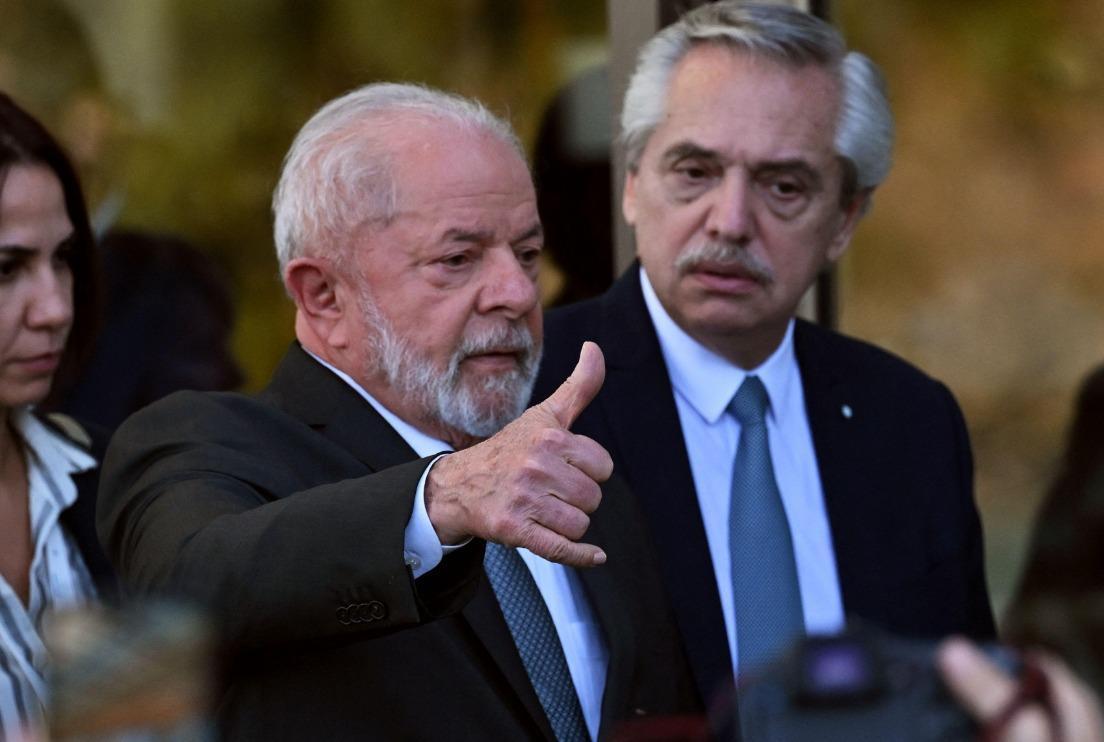
Argentina and Brazil, South America's largest economies, took aim at an "unacceptable" EU stance in negotiations with the Mercosur bloc for a free trade deal long delayed due to stated European environmental concerns.
Mercosur countries Argentina, Brazil, Paraguay and Uruguay reached an agreement in principle with the 27-member European Union in 2019 after two decades of tough negotiations.
The EU has since proposed a "side letter" to the agreement with extra environmental requirements, rankling South American leaders who suspect protectionism was at work.
At a two-day summit in Puerto Iguazu, Argentina, Mercosur leaders hit back.
The latest proposal, said Brazil's Luiz Inacio Lula da Silva, "is unacceptable."
"Strategic partners do not negotiate on the basis of distrust and the threat of sanctions," he told the meeting.
"We are not interested in agreements that condemn us to forever be exporters of raw materials, mineral products and oil."
Argentine president Alberto Fernandez echoed this point, saying: "No one can condemn us to be suppliers of the raw materials that others industrialize and then sell to us at exorbitant prices."
The grouping, founded in 1991, represents 62 percent of South America's population and 67 percent of the continent's gross domestic product.
Its trade deal with the EU became held up under the 2019-2022 presidency of Lula's far-right predecessor Jair Bolsonaro, on whose watch Amazon deforestation surged.
While veteran leftist Lula has cast himself as the anti-Bolsonaro on environmental policy, he told European Commission head Ursula von der Leyen in June he had concerns over the additional environmental guarantees.
"No one in the world has the moral authority to discuss with us the issue of clean energy," Lula said in an interview with Brazilian public television shortly before the Tuesday's meeting.
Lula said his government was preparing a counter-proposal to take to Brussels, hosting a summit of the EU and the Community of Latin American and Caribbean States (CELAC) on July 17 and 18.